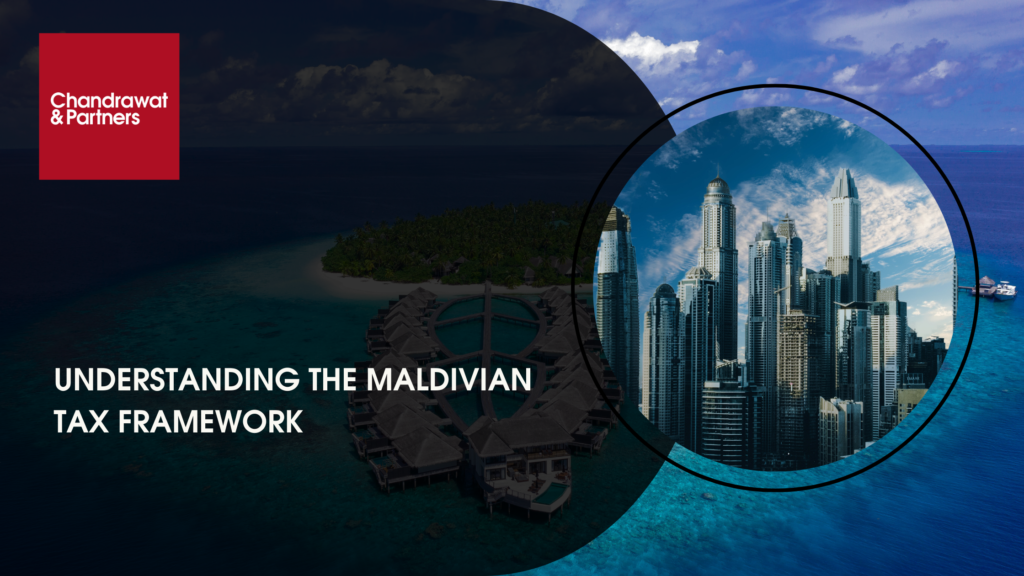
December 24, 2024
UNDERSTANDING THE MALDIVIAN TAX FRAMEWORK
INTRODUCTION
The Maldives has established a unique tax framework that reflects its economic priorities and development objectives. As an island nation heavily dependent on tourism and international trade, its tax system has been designed to promote investment while ensuring sustainable revenue generation. Since the introduction of modern tax legislation in 2010, the country has continuously evolved its tax administration to meet international standards while maintaining its competitive edge in the global market.
TAXATION AUTHORITY
The Maldives Inland Revenue Authority (“MIRA”), established under the Tax Administration Act 2010, serves as the primary tax administration body. MIRA holds comprehensive authority to implement tax laws, collect revenue, and ensure compliance across all business sectors. The authority operates with significant autonomy while maintaining accountability through regular reporting to the Ministry of Finance.
KEY COMPONENTS OF THE TAX SYSTEM
- GOODS AND SERVICES TAX (“GST”)
GST is one of the most prominent taxes in the Maldives, comprising two categories:
- Tourism Goods and Services Tax (“TGST”): A higher rate applicable to goods and services within the tourism sector, such as accommodations, dining, and recreational activities.
- General GST: A lower rate applied to other goods and services consumed locally.
As of recent updates, TGST and GST rates are periodically reviewed to align with fiscal policies and economic needs.
- BUSINESS PROFIT TAX (“BPT”)
The Business Profit Tax applies to businesses generating income in the Maldives. Both resident and non-resident companies are subject to this tax if they derive income from sources within the country. The standard BPT rate is competitive, encouraging foreign investments.
- INCOME TAX
Introduced in recent years, income tax in the Maldives applies to individuals and entities earning above a specific threshold. Progressive rates are used, ensuring equitable taxation across different income levels.
- WITHHOLDING TAX
Withholding tax is levied on certain payments made to non-residents, such as royalties, dividends, and interest. This ensures that foreign entities contribute to the local economy when benefiting from Maldivian resources or services.
EXEMPTIONS AND INCENTIVES
To promote economic growth, the Maldivian government offers several tax exemptions and incentives:
- Special Economic Zones (“SEZs”): Businesses operating within SEZs enjoy tax holidays and reduced rates.
- Tourism Industry Incentives: Resorts and tourism-related businesses benefit from custom duty exemptions on imported goods used for development and operations.
- Fishing Sector Reliefs: Recognizing the importance of fisheries, the government provides tax breaks to encourage sustainable practices.
COMPLIANCE REQUIREMENTS
Businesses must register with MIRA when reaching specified thresholds. The registration process includes separate registrations for different tax types, with most filings conducted electronically through MIRA’s online portal.
CHALLENGES AND OPPORTUNITIES
While the tax system supports economic stability, challenges such as limited diversification and dependency on tourism create vulnerabilities. However, the government’s strategic reforms and incentives aim to attract foreign investment and foster sustainable growth.
CONCLUSION
The Maldivian tax regime effectively balances revenue generation with investment attraction. While relatively straightforward compared to many jurisdictions, successful navigation requires understanding specific obligations and maintaining proper compliance procedures. As the system continues evolving, staying informed about regulatory changes and maintaining strong compliance practices remains crucial for businesses operating in the Maldives.
This framework demonstrates the government’s commitment to creating a business-friendly environment while ensuring sustainable revenue generation for national development. Understanding and effectively managing these tax obligations remains essential for business success in the Maldivian market.
HOW WE CAN HELP?
- Our team provides the latest tax amendments and compliances requirements to align with the changing tax structure.
- We ensure that the business stays compliant with local laws by providing ongoing assistance with corporate governance, annual filings, and financial reporting.
- Our team can help in making the best use of the tax exemptions offered by the Maldivian Government.
For more information or queries, please email us at
enquiries@chandrawatpartners.com
Key Contact

Surendra Singh Chandrawat
Managing Partner

